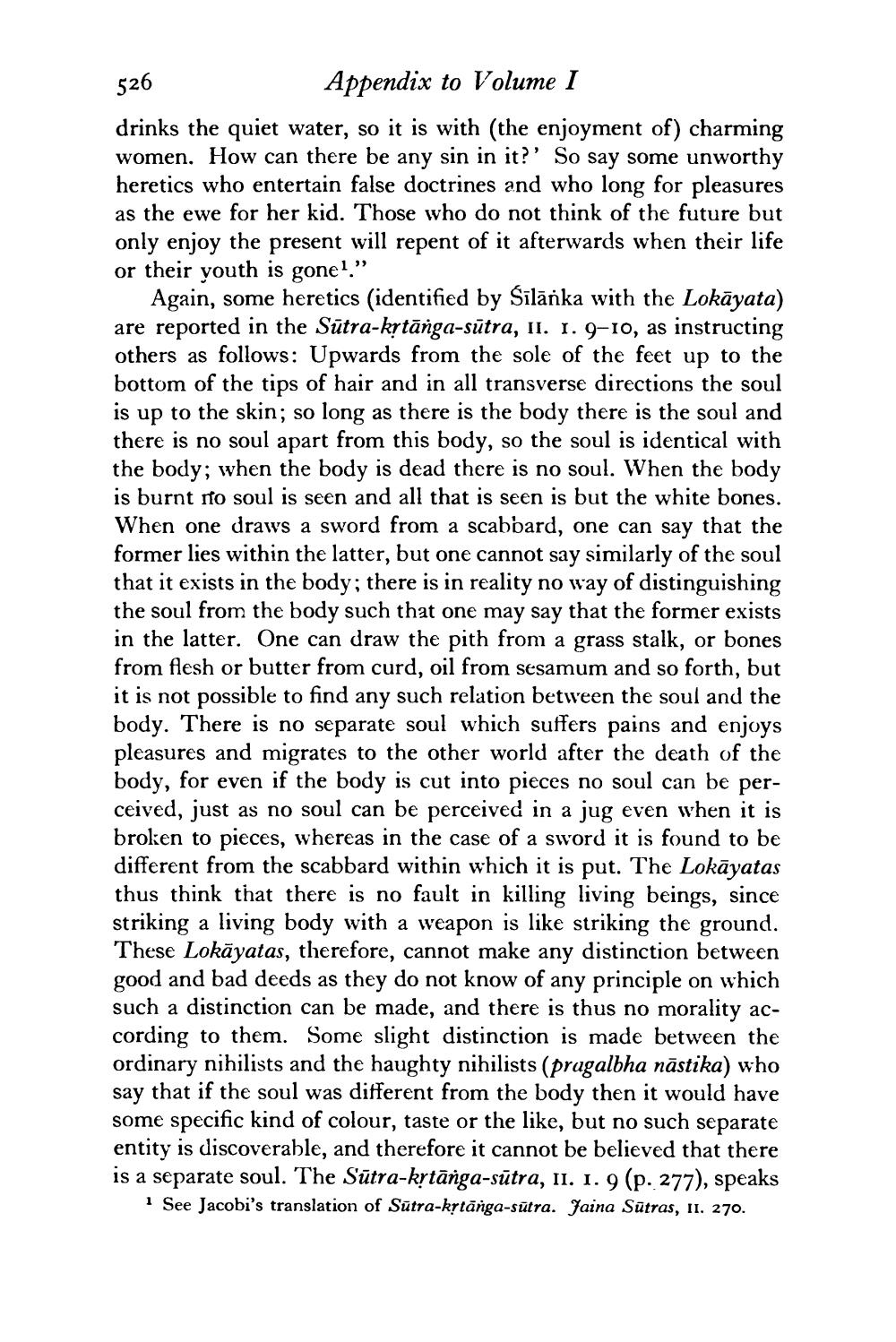________________
526
Appendix to Volume I
drinks the quiet water, so it is with (the enjoyment of) charming women. How can there be any sin in it?' So say some unworthy heretics who entertain false doctrines and who long for pleasures as the ewe for her kid. Those who do not think of the future but only enjoy the present will repent of it afterwards when their life or their youth is gone1."
Again, some heretics (identified by Śīlānka with the Lokāyata) are reported in the Sūtra-kṛtānga-sūtra, II. 1. 9-10, as instructing others as follows: Upwards from the sole of the feet up to the bottom of the tips of hair and in all transverse directions the soul is up to the skin; so long as there is the body there is the soul and there is no soul apart from this body, so the soul is identical with the body; when the body is dead there is no soul. When the body is burnt no soul is seen and all that is seen is but the white bones. When one draws a sword from a scabbard, one can say that the former lies within the latter, but one cannot say similarly of the soul that it exists in the body; there is in reality no way of distinguishing the soul from the body such that one may say that the former exists in the latter. One can draw the pith from a grass stalk, or bones from flesh or butter from curd, oil from sesamum and so forth, but it is not possible to find any such relation between the soul and the body. There is no separate soul which suffers pains and enjoys pleasures and migrates to the other world after the death of the body, for even if the body is cut into pieces no soul can be perceived, just as no soul can be perceived in a jug even when it is broken to pieces, whereas in the case of a sword it is found to be different from the scabbard within which it is put. The Lokayatas thus think that there is no fault in killing living beings, since striking a living body with a weapon is like striking the ground. These Lokayatas, therefore, cannot make any distinction between good and bad deeds as they do not know of any principle on which such a distinction can be made, and there is thus no morality according to them. Some slight distinction is made between the ordinary nihilists and the haughty nihilists (pragalbha nāstika) who say that if the soul was different from the body then it would have some specific kind of colour, taste or the like, but no such separate entity is discoverable, and therefore it cannot be believed that there is a separate soul. The Sutra-kṛtānga-sutra, II. 1. 9 (p. 277), speaks 1 See Jacobi's translation of Sutra-kṛtānga-sutra. Jaina Sūtras, II. 270.




